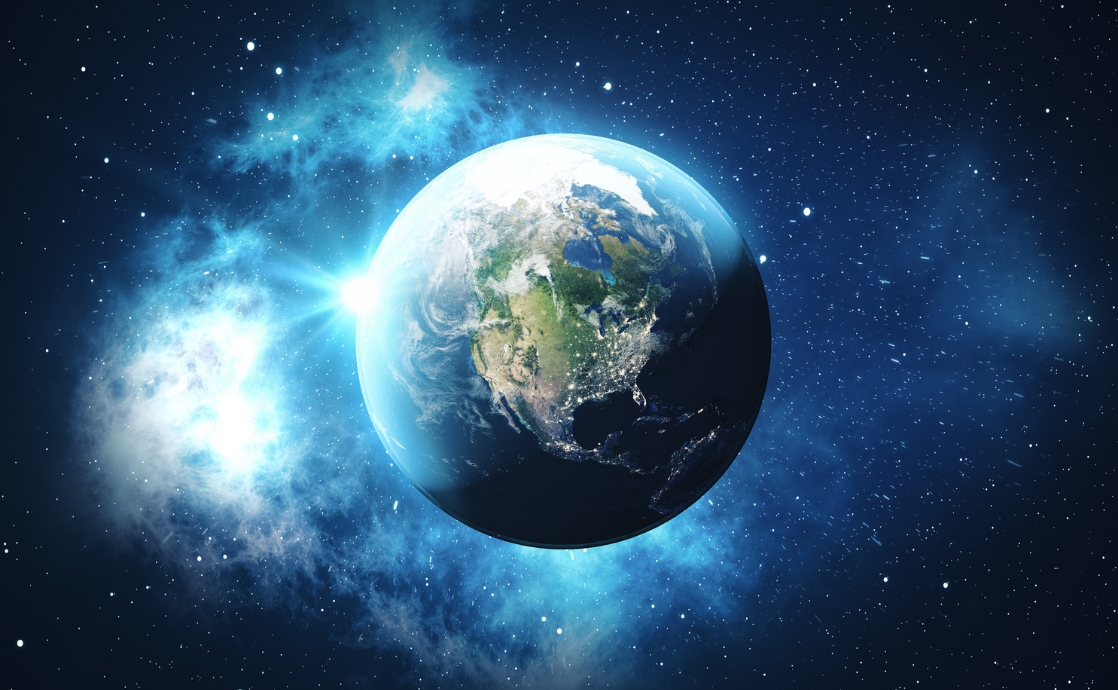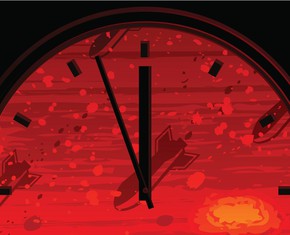The views expressed in our content reflect individual perspectives and do not represent the authoritative views of the Baha'i Faith.
In a dialogue I had with my client and friend Misha – like me, a person of Slavic-Jewish descent – I learned that he believed segregation of different colored people was the only way to peace and security.
Misha very much wanted to test and even disprove the core principle of the Baha’i Faith – the unity of humankind. As Abdu’l-Baha, the son and successor of Baha’u’llah, the Baha’i Faith’s prophet and founder, wrote:
… all the members of the human family, whether peoples or governments, cities or villages, have become increasingly interdependent. For none is self-sufficiency any longer possible, inasmuch as political ties unite all peoples and nations, and the bonds of trade and industry, of agriculture and education, are being strengthened every day. Hence the unity of all mankind can in this day be achieved.
RELATED: Would You Like to Help Build a New Global Community?
I believe there was a part of Misha that wanted to prove this Baha’i principle true, and another that believed it was too hard. (Harder, say, than segregating people by skin color or ethnicity at this late stage in human evolution.)
In pursuit of that goal, he asked me about a global society and religious freedom.
Q: Let’s say mankind unifies and forms a global community. Who shall decide how to designate world leaders to rule such a huge group?
A: Baha’u’llah praised the constitutional forms of government. That is, a leader (king, queen, prime minister or president, etc.) balanced by a democratically-elected body – a parliament or congress. He therefore recommends that each nation have some sort of elected constitutional government, and that a world Congress and a world Tribunal be elected from among the statesmen and women of the countries to help guide the global community.
Many Baha’i writings explain this principle in detail, primarily written by Baha’u’llah and the Guardian of the Baha’i Faith, Shoghi Effendi. In sum, the EU and the US are models for how even an imperfect union of federated states can be successful … and for ways in which they can undermine that success.
Q: How could that group of world directors be protected from suspicion of corruption, and that no one receives privileges others don’t have?
A: I don’t know if it would be adopted for a system of global governance, but the Baha’i administrative order, which was created by Baha’u’llah himself, is unique in that the authority for decision-making never rests with one individual. In every community, a group of nine adult Baha’is, called a Local Spiritual Assembly, is elected annually by the members of the community. They make decisions for the local community in consultation with community members, based on guidance from the Baha’i writings and other institutions of the Faith.
At the national level, are nine-member National Spiritual Assemblies are elected every year by elected delegates sent from the local communities. At the global level, the Universal House of Justice operates at the world center of the Faith on Mount Carmel in Haifa, Israel. That elected body also has nine members, elected by the National Spiritual Assemblies from all over the world.
Here’s the thing: Each body has a chairperson whose job it is to keep order and make sure the body functions according to the principles of Baha’i consultation; they have no personal power. In fact, none of the individual members of any of these bodies from the local to the global has any personal power at all. This is a station of servitude not “leadership” as we have historically understood it.
Decisions, even those made by the Universal House of Justice, are binding only when they come from the institution as a body. So, for example, if the House of Justice requested that I write a book on a certain subject, though I could say “no” without fear of punishment, I view their word as expressing God’s will. I would unhesitatingly write the book, even if I knew it would prove a financial hardship. If an individual member of the House or even two or three said, “It would be great if you’d write this book.” I would not feel obligated to do it, though I might still consider it.
So this is a self-correcting system. It may be the one we evolve to solve world issues. Baha’u’llah left that part up to us. But what it has shown me over the last 40-plus years is that a system can exist in which personal power-mongering has no place. It’s self-policing, because there is no “clout” for the individual to wield. Such a system may be very workable in the world.
I should note, Misha, that Baha’i elections happen without nominations, campaigning, or any such thing. Every adult Baha’i in a community is eligible. The election consists of a meeting where prayers for wisdom are said and secret ballots are cast. If someone were to say aloud, “I think I should be on the Assembly,” their chance of being elected would probably vanish, because the qualities Baha’is look for in the people who guide the community are such things as humility, service, kindness, and wisdom.
Q: How it will be resolved which religion will be followed?
A: Muhammad said that there must be no compulsion in religion. So from the Baha’i viewpoint, no “state” religion can be forced on people. That would be a violation of the teachings in any scripture you care to name. Even now, people in the mainstream of most religions are recognizing that other religions contain truth. They are trying to work with and not against people of other Faiths. Sure, there are fanatics who want everything separate and unequal, but they’re a noisy minority. A friend told me that a Catholic woman who was attending Baha’i meetings at her home asked her priest if it was okay for her to do this. The priest said, “Of course. The Baha’is are worshipping the same God we are.”
RELATED: How You Can Build Global Unity From the Grassroots Up
While I personally think it would be optimal for everyone to become a Baha’i, that’s not the important thing. The important thing is that we learn how to live collaboratively, in peace and unity. Abdu’l-Baha, the eldest son of Baha’u’llah, said that a Baha’i is simply someone who is willing to work for the welfare of humanity. In that sense, even an atheist can be a Baha’i in spirit.
What is important is that religious fanaticism cease – because the religions, in reality, represent one gradually revealed Faith. As Abdu’l-Baha said:
May fanaticism and religious bigotry be unknown, all humanity enter the bond of brotherhood, souls consort in perfect agreement, the nations of earth at last hoist the banner of truth, and the religions of the world enter the divine temple of oneness, for the foundations of the heavenly religions are one reality.
You are no doubt wondering what fruit this dialogue yielded. Did Misha accept the Baha’i teachings? The answer is: I don’t know, because I haven’t spoken to him in several years though we parted as friends. What I do know is that, during our working relationship, he no longer mocked Baha’i beliefs or attempted to trip me up. He discussed the teachings with me with candor and respect and not a trace of sarcasm. He also stopped referring to himself as an atheist, and instead called himself an agnostic.
When I first met Misha, he told me that he felt the Communist regime had stolen God from him. I am yet hopeful that somehow through our dialogues, he might have begun to find what he felt he had lost.
















Comments
Sign in or create an account
Continue with Googleor